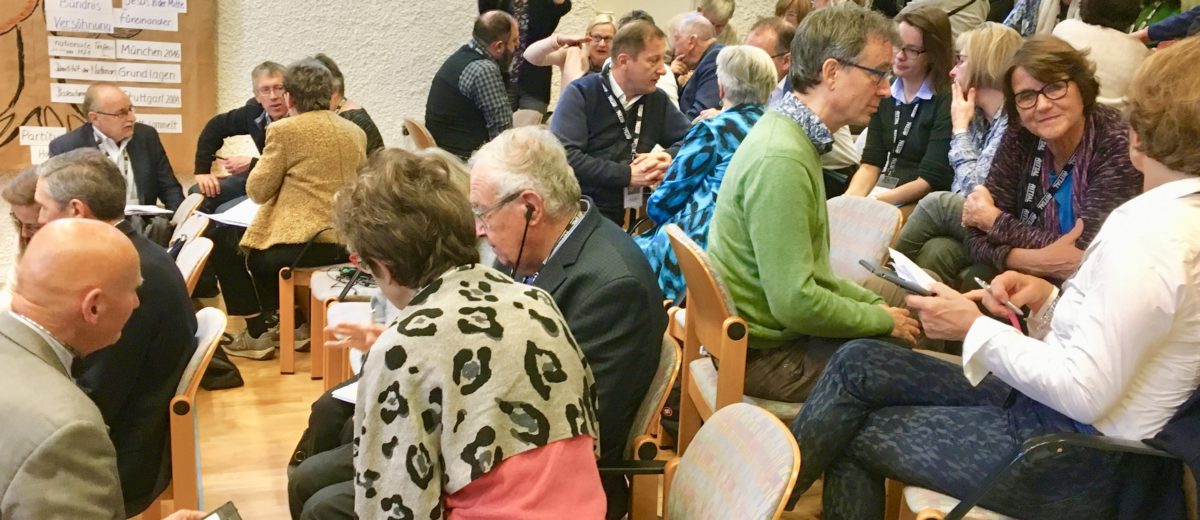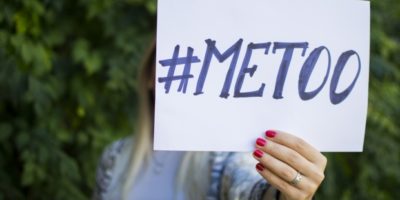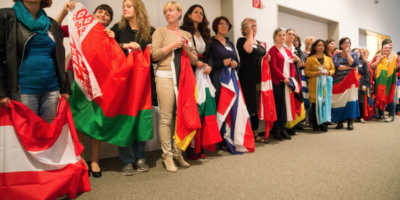Europeans from north and south, east and west, need to time to listen to each other to become aware of differences and to overcome misunderstandings.
My wife and I have just returned from such a time of dialogue and mutual listening in Vienna, a three-day gathering of 120 representatives of Christian movements, Orthodox, Catholic, Protestant and Charismatic, from Portugal to Russia, and Ireland to Greece. This Together for Europe (TfE) umbrella began with a pact of love 18 years ago between leaders of several movements, including the YMCA, a Lutheran sisterhood, the Focolare movement and the St Egidio community. It has grown to embrace over 200 movements all professing Jesus Christ as Lord.
Johannes Fichtenbauer, advisor to Cardinal Schönborn in Vienna, spoke of a dramatic new step in church unity made at the Pentecost 2017 gathering in Rome last June, on the 50th anniversary of the Catholic Charismatic movement. Pope Francis invited Pentecostal and Charismatic church leaders to join Catholic leaders in acknowledgement of these ‘younger brother and sister churches’ as the source of the Catholic renewal movement. The Austrian lay leader said the pope had taken a step no predecessor had done: to declare a goal of unity not based on ‘separated brethren returning to the Mother Church’, but rather a ‘unity in reconciled diversity’, unity through diversity.
This unity required a humility on all sides, the pope had stressed, a recognition that each church missed something that others could offer. Church unity could only happen, he believed, when all moved closer to Christ, not when others ‘returned to Rome’.
For some Catholics, I am told, the pope is moving too far and too fast. For some Protestants and evangelicals, a long history of persecution and opposition from Catholics have bred a deep mistrust and suspicion. Hence the need for relational encounters and listening exercises.
Platform
Such encounters were also needed for east-west dialogue, urged Pàl Toth, a professor in communication studies at Sophia University in Loppiano, Italy. European unity was being threatened by mutual misunderstanding, he said, explaining how his own Hungarian-Germanic-Slovenian roots straddled the east-west divide. Differences in attitudes towards migrants, church-state relationship, social ethics and family values were rooted in different histories and backgrounds.
While Western Europe was mainly a socio-political concept, Eastern Europe was rather a geographical concept. Western European countries of the ‘first world’ had centuries-old political, economic and cultural backgrounds very different from Eastern Europe. They were commonly associated with liberal democracy and capitalism, and historically were Protestant and Catholic nations.
Eastern Europe, made up of Central Europe, the Balkans and former Soviet Union nations, embraced Catholic and Orthodox territories and shared post-communist cultures struggling to become democratic. While a number of legal and economic systems had rapidly adapted to western models, national cultures were not making the same shift.
Fruitful dialogue required a culture of encounter, mutual acquaintance and reconciliation, not criticism and defensiveness, he said. Creating a platform was essential, a safe place where dialogue was possible, where humility, trust and mutual acceptance could be nurtured.
Ignorant
While the East had for centuries looked to the West for cultural and political models, developing a certain understanding of western developments, the West still remained largely ignorant of the East and thus was prone to entertain misunderstandings.
The West, with its history of immigration from former colonies, had had a long experience of religious and cultural diversity. For the East, made up of former members of empires and Soviet satellites, the process of nation-building was not yet complete. Some eastern nations had been formed through ethnic cleansing; others through the post-war negotiations of the Great Powers, leaving ethnic populations artificially divided. While the West wanted to move beyond the notion of nation, the East wanted to strengthen it. While the West saw the need for unity in diversity, the East tended towards a homogeneous conception of society, Toth observed.
Attitudes towards church-state relationships also differed greatly between East and West, he explained. Eastern nations reflected a more Orthodox understanding of symbiotic relationship while western secularism insisted on a clear separation. Both East and West needed to ask, what could we learn from each other?
In a round table panel, Eastern Europeans told of being caught between a Western imperialism on the one side, making the acceptance of western secular liberal ethics on matters of same-sex marriage, for example, conditional for receiving EU funds, and Putin’s demands on Russia’s right to determine the fate of ‘his buffer nations’, on the other.
One concrete step towards a culture of mutual understanding and reconciliation was a proposal to observe May 9, Europe Day, as a sort of Interdependence Day celebrating connectedness. This was enthusiastically embraced by the participants who committed to encourage a de-centralised, grass-roots, non-political May 9 Movement, with activities and events at local, national and European levels.
About which we’ll write more soon…
Till next week,



